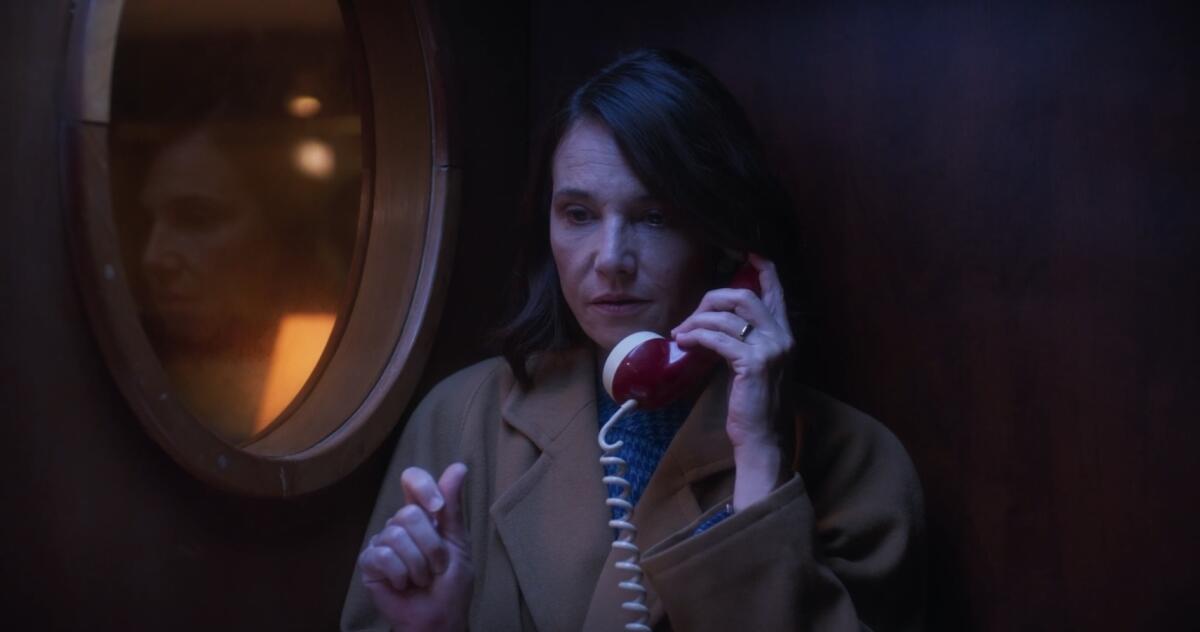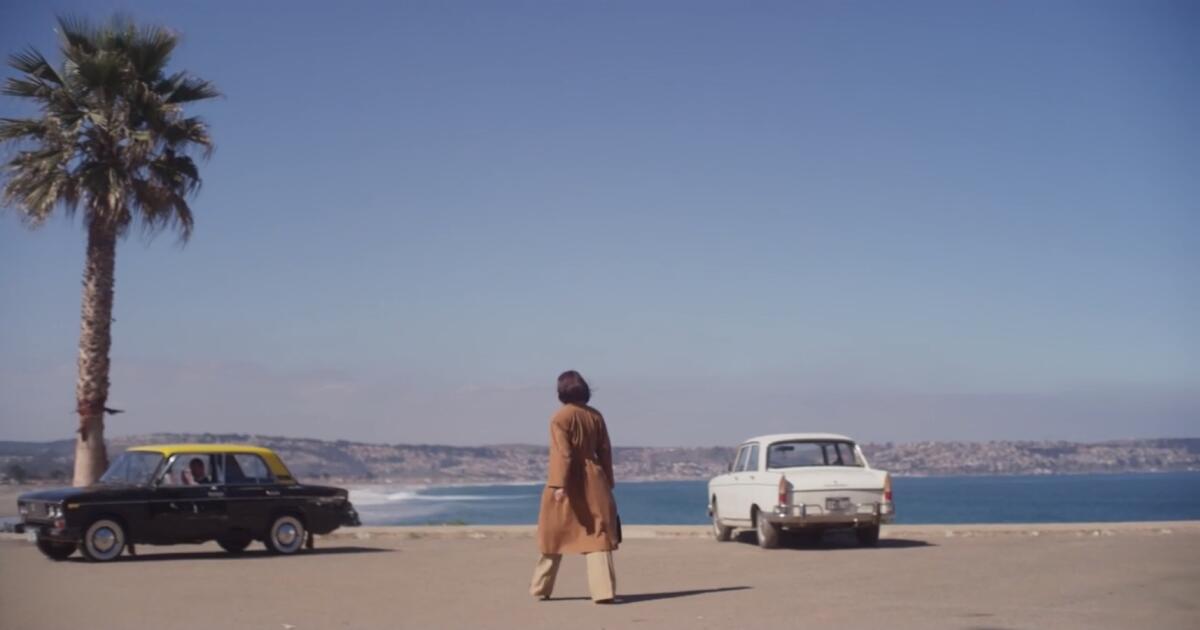Review: A woman of conscience chooses action during the time of Pinochet in ‘Chile ‘76’

- Share via
It’s beneath a specifically rich hue of pink paint that Carmen (Aline Küppenheim), a former nurse from the upper crust of Chilean society, aims to conceal any signs of unrest within her. The horrors of the Pinochet dictatorship rage in close proximity, sometimes directly in her line of sight, as she tries to keep them from fracturing her illusion of a proper life.
“Chile ’76” a gripping psychological thriller written and directed by Manuela Martelli, distills the sociopolitical ills of the South American country during one of its bleakest periods into a blistering radiograph of a torn character. Trapped inside a culture poisoned with entrenched conservative ideologies, Carmen harbors a secretly progressive conscience.
While dealing with renovations to the family’s beach house, where her doctor husband and grandchildren will join her for the summer from Santiago, whispers of trouble reverberate inside its walls. The unnerving sharp edges of Mariá Portugal’s piercingly dissonant score herald impending trouble. Tending to a request from a trusted priest (Hugo Medina), Carmen puts to use her medical knowledge — and influence — to patch up an injured “criminal” in secret. After getting to know him, she’ll do far more to aid his cause.
In a sublimely restrained turn, Küppenheim conveys a graceful desperation. Her state of founded paranoia grows as she puts herself on the line to connect the fallen revolutionary with his comrades. Küppenheim embodies the brave ambivalence of a privileged woman, whose position hasn’t entirely protected her from the dictates of a patriarchal state. It’s not that she is suddenly taking a side, but rather backing her long-held ideals with actions.
The elegantly composed visual confections of cinematographer Soledad Rodríguez, another member of this female-centric production, preserve a deceitful patina of idyllic nostalgia, which is shattered intermittently through the increasingly disturbing signs that Carmen’s efforts haven’t gone unnoticed by those in charge of brutally silencing dissent. Martelli handles the character’s tension with harrowing precision. One traffic stop, for example, turns into a moment of pure agony, and religious pleading, because a car won’t start.

Eventually, the pink color that she so painstakingly selected to coat one of her vacation property’s rooms, inspired by a vibrant crimson sky on a travel guide, resembles the diluted blood of the man she’s risked so much to help. In a variety of distinct shades, pink emerges as a motif for Carmen’s involvement through her outfits. It gains prominence and saturation the more her affluent oblviousness to the nation’s reality vanishes.
With co-writer Alejandra Moffat, Martelli carves a refreshingly feminist entry point into a subject matter so understandably present in the cinema of their homeland. Rather than relitigate the monstrous legacy of the men in power then, the director opts for a portrait of the era painted in seemingly offhand lines of dialogue that communicate plenty, quiet instances of internalized terror for Carmen, and immaculate images. Concise, yet affecting, “Chile ‘76” assuredly occupies the post as one of the finest Latin American productions to open stateside this year.
“The cake is ready,” says a housekeeper through tears as “Chile ‘76” nears its end. Such a banal preoccupation amid the dehumanizing antics of the regime recalls how those who could afford it carried on with a false sense of normalcy while their compatriots disappeared en masse without a trace. The splatter of the chaos happening just beyond their manicured silos ultimately proved inescapable. Sooner or later, it stained their hands with guilt.
‘Chile ’76’
In Spanish with English subtitles
Not Rated
Running time: 1 hour, 35 minutes
Playing: Starts May 19, Laemmle Royal, West Los Angeles
More to Read
Only good movies
Get the Indie Focus newsletter, Mark Olsen's weekly guide to the world of cinema.
You may occasionally receive promotional content from the Los Angeles Times.










